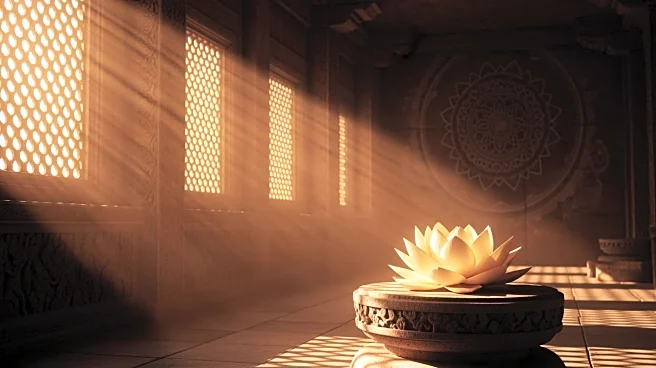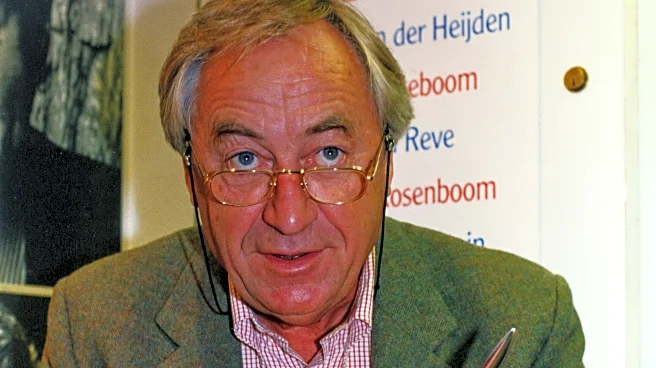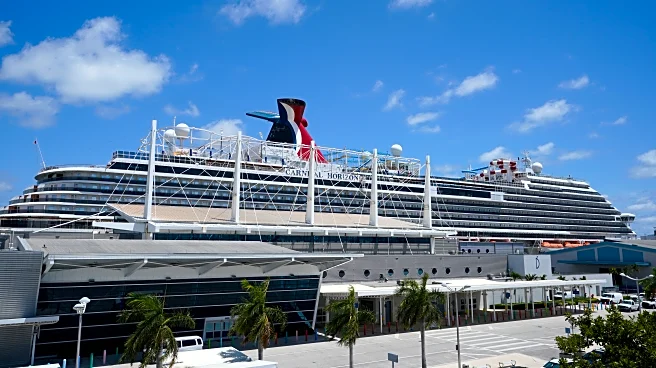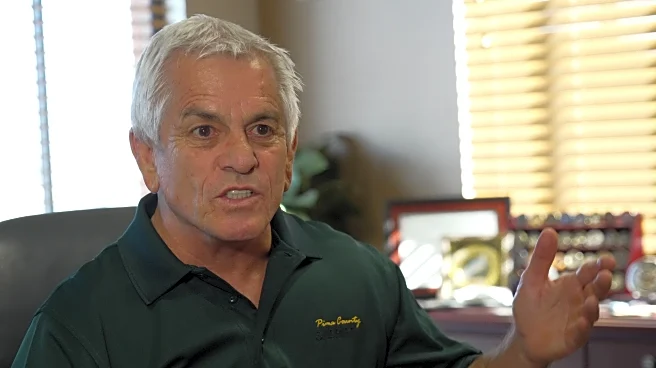What's Happening?
Netflix and Legendary Entertainment are advancing the development of a live-action adaptation of the popular anime series My Hero Academia. Jason Fuchs, co-showrunner of HBO's It: Welcome to Derry, is
involved in writing the screenplay for the film. Fuchs noted similarities between the two projects, highlighting themes of outsiders coming together to confront evil. The film is still in the writing phase, and casting has not yet begun. Legendary Entertainment acquired the rights to produce the film in 2018, with Japanese director Shinsuke Sato set to make his English-language debut. Netflix joined as the distributor in 2022, and Fuchs was brought in to rewrite the script in September 2025.
Why It's Important?
The live-action adaptation of My Hero Academia is significant as it represents a growing trend of adapting popular anime series for Western audiences. This project could potentially expand the reach of anime culture and influence in the U.S. entertainment industry. Successful adaptations can lead to increased interest in anime, driving demand for more content and potentially boosting the market for related merchandise and media. The involvement of major players like Netflix and Legendary Entertainment underscores the commercial potential of such adaptations, which could lead to more collaborations between Western studios and Japanese creators.
What's Next?
As the project progresses, the next steps will likely involve finalizing the screenplay and beginning the casting process. The choice of actors will be crucial in capturing the essence of the original characters and appealing to both existing fans and new audiences. The film's development will be closely watched by fans of the series and the broader anime community, who may have strong opinions on how the adaptation should be handled. The success of this project could influence future decisions on adapting other popular anime series into live-action films.
Beyond the Headlines
The adaptation of My Hero Academia into a live-action film raises questions about cultural translation and representation. Ensuring that the film remains faithful to the original while appealing to a global audience will be a delicate balance. This project could also spark discussions about the portrayal of Japanese culture in Western media and the importance of maintaining authenticity in adaptations. Additionally, the film's success or failure could impact the perception of anime adaptations in Hollywood, influencing future projects and collaborations.











